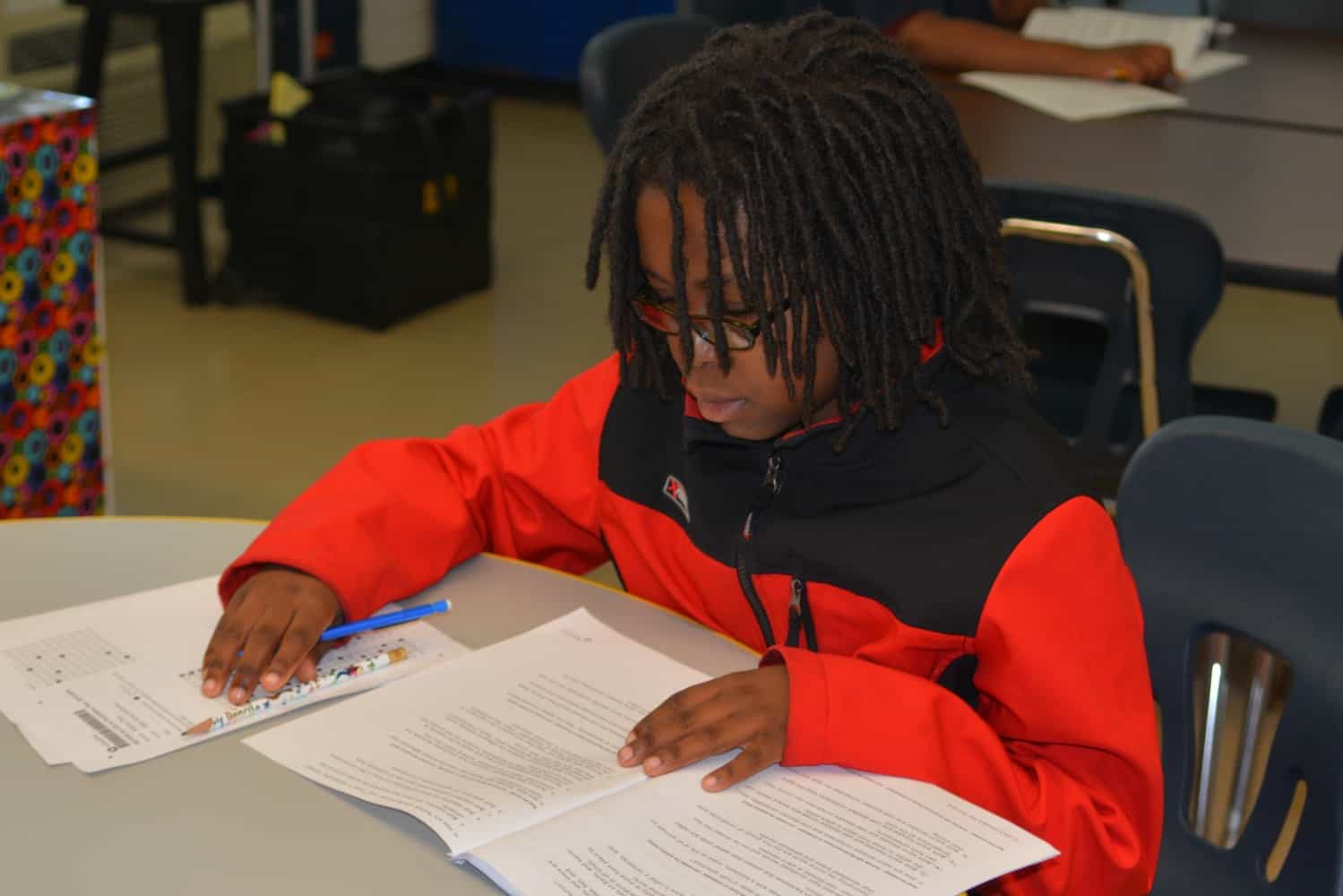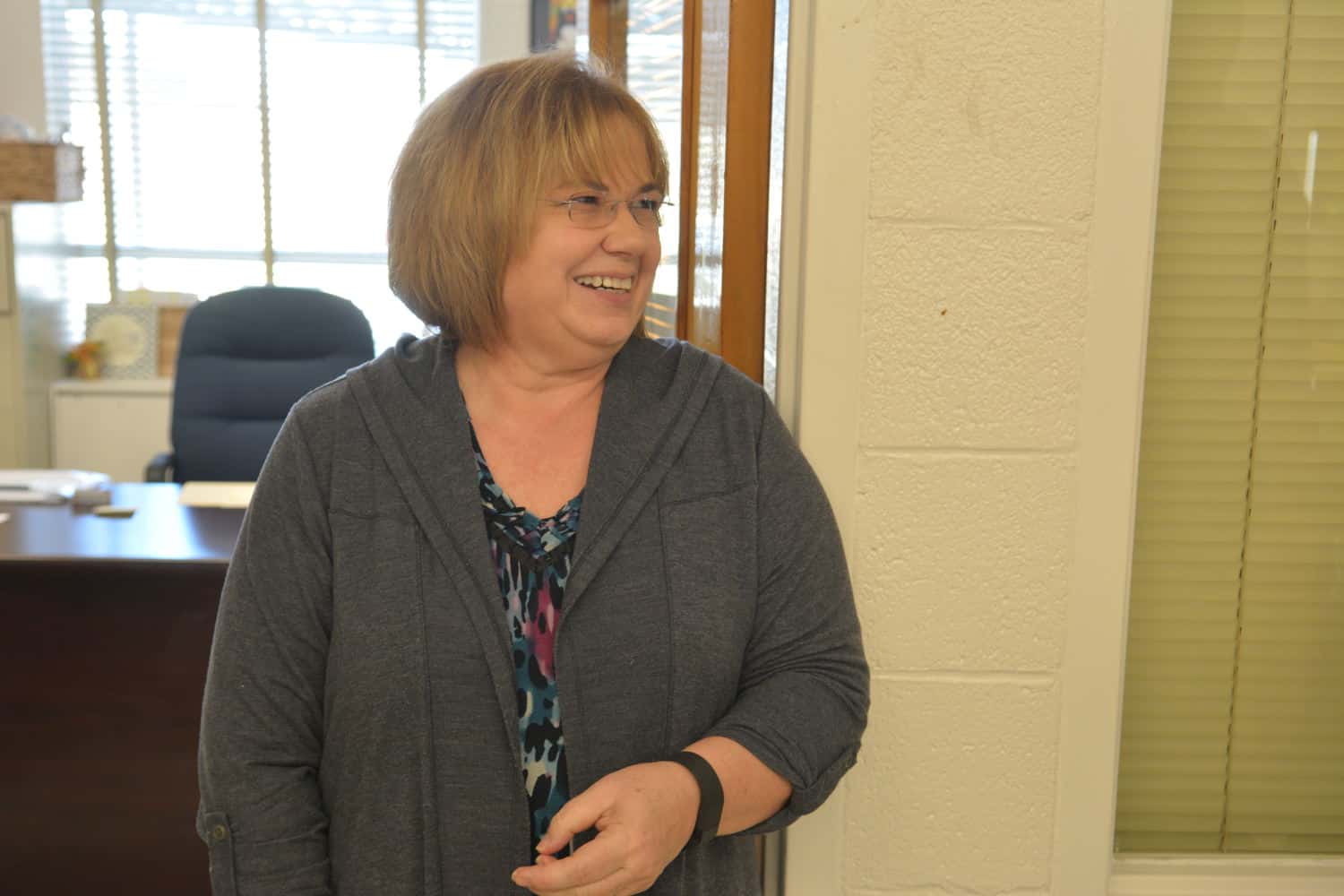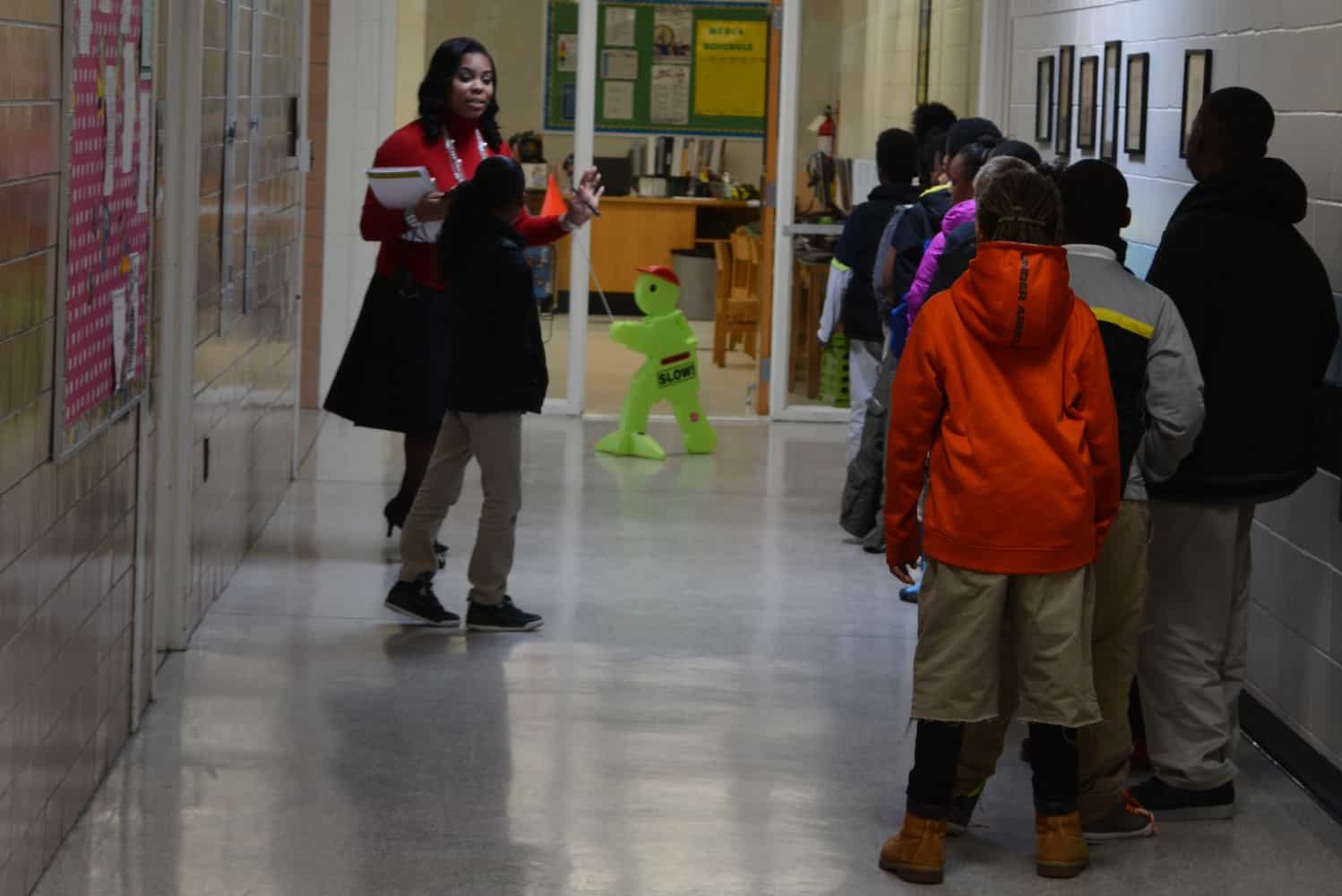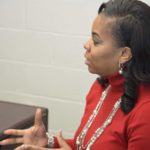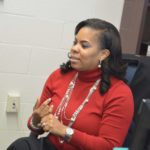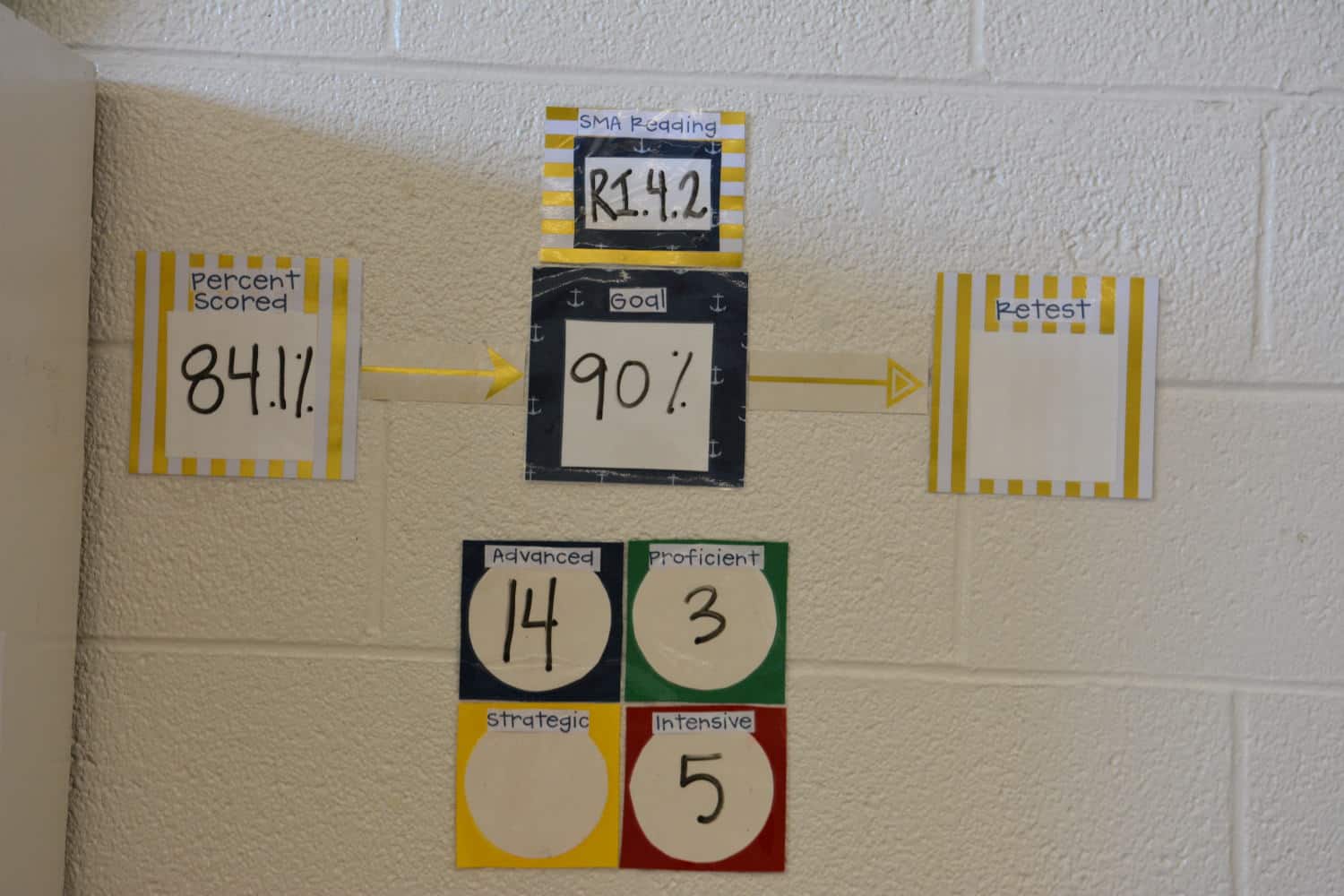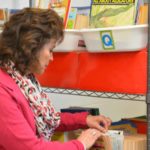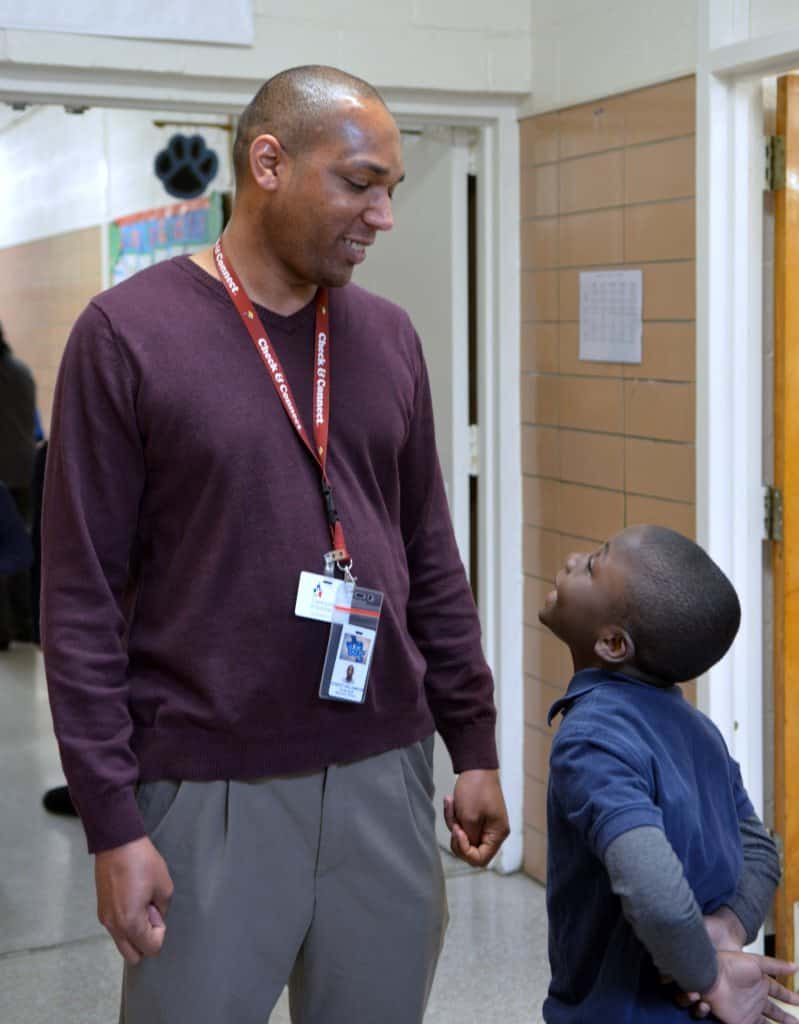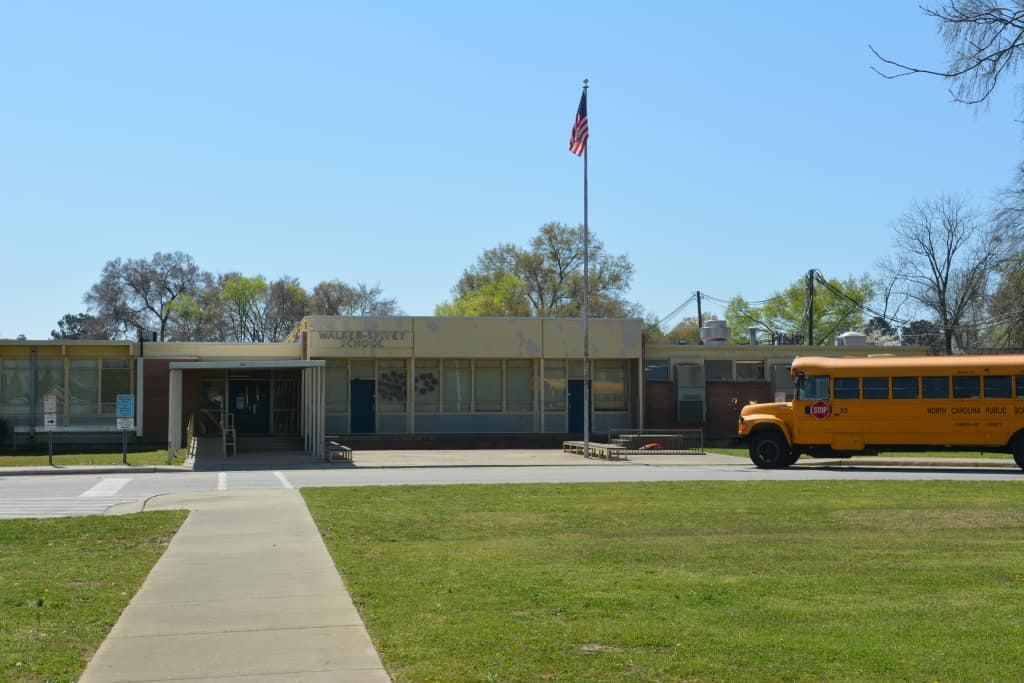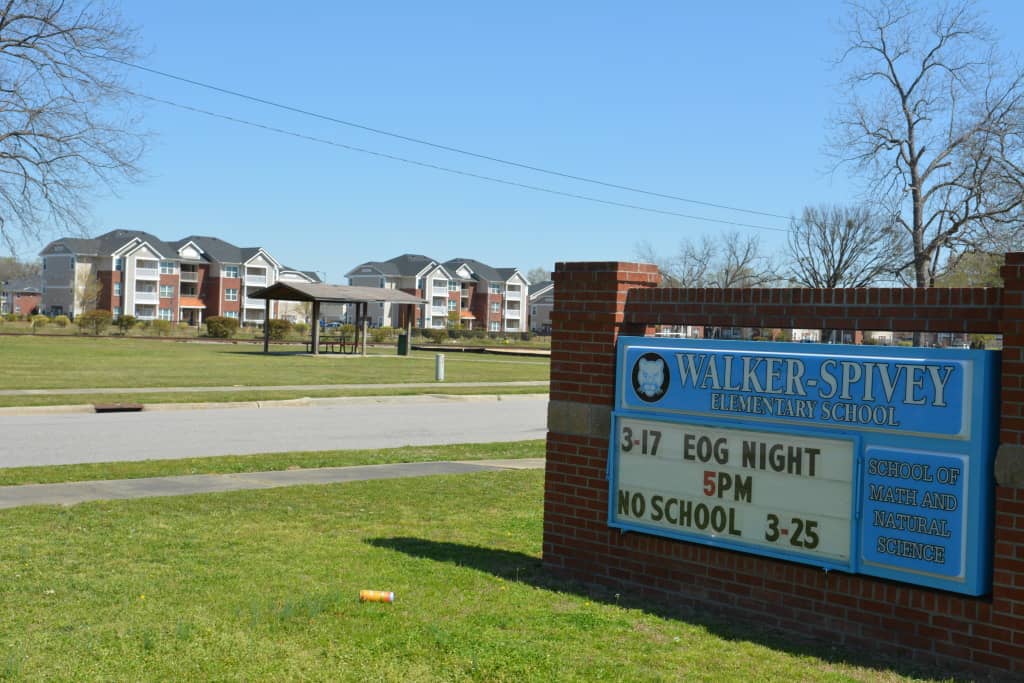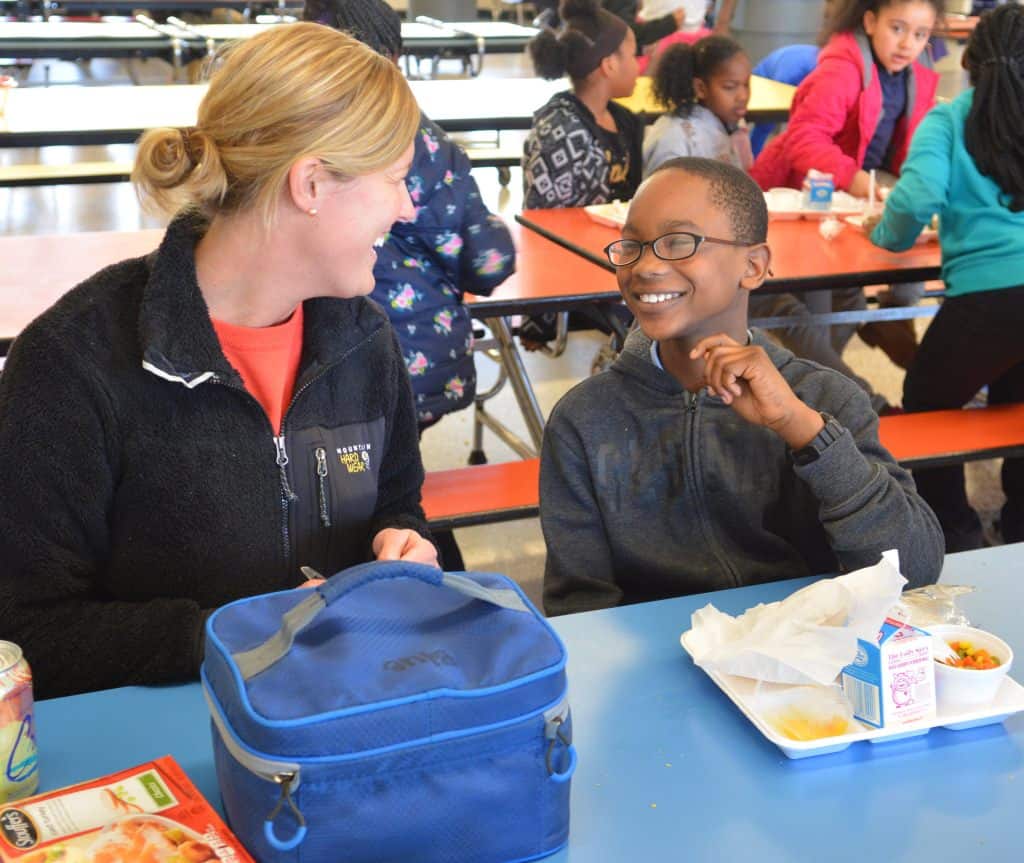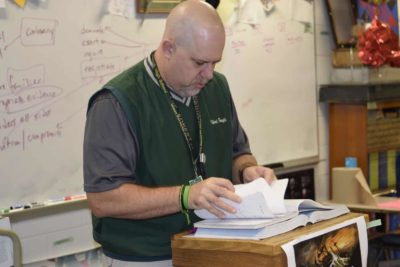

“I was upset,” says Liz Blue, a fourth grade teacher at Walker-Spivey Elementary School in Cumberland County. “We had a newspaper article, a series, that came out in this district. And I got very upset.”
Blue wants the state to see her students, her parents, and her school – the Panthers – as she does. “They need to come to PTA nights. They need to come to my classroom. They need to meet my parents.”
Blue says, “We are the poorest school in the county, the lowest demographic, 100 percent free and reduced priced lunch.”
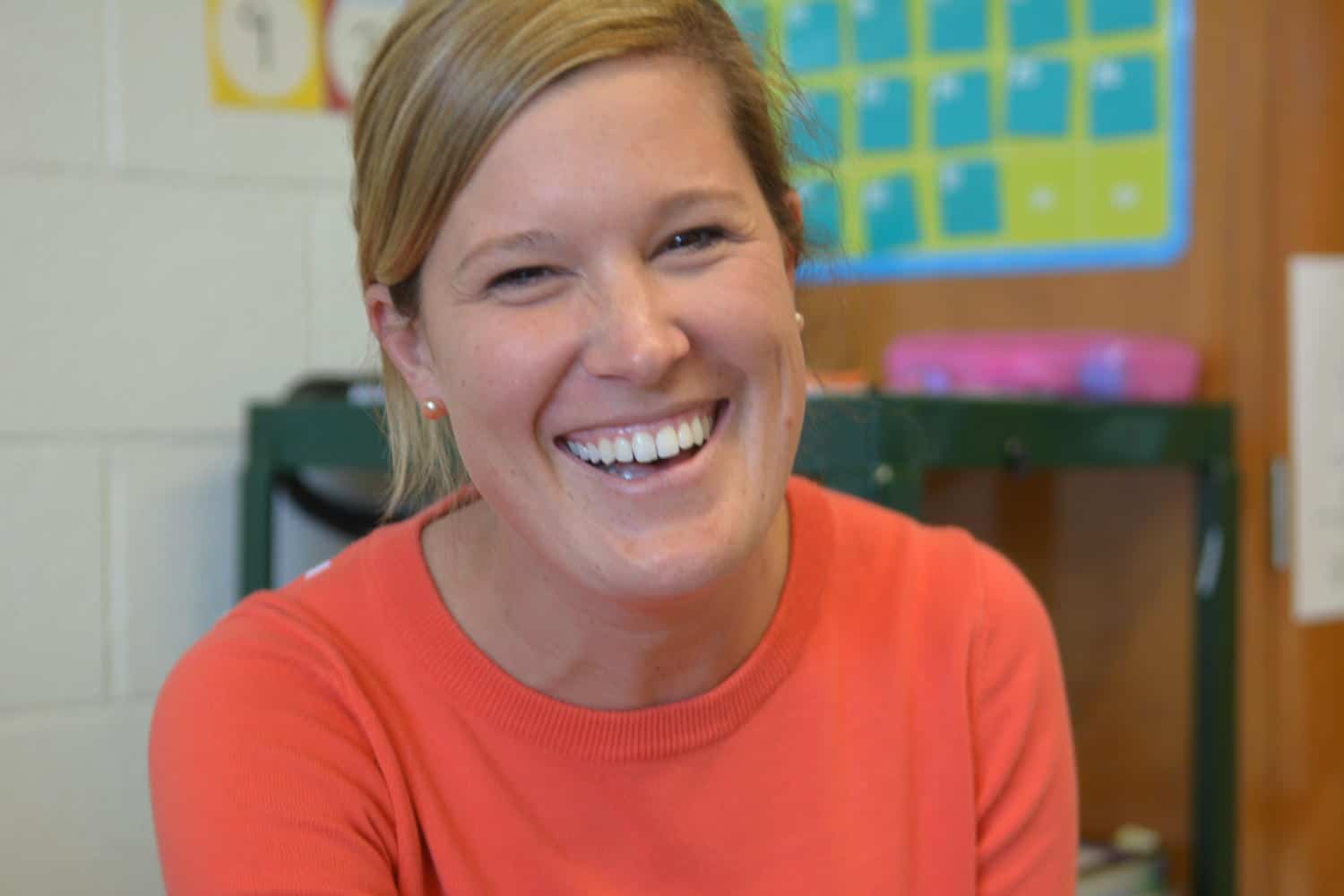

On any given school day, she says, “I’m a dentist. I’m a doctor. I’m a teacher. I’m a mother.” The job is challenging she admits. But she says, “Then you come back the next day and its just a brand new day.”
“The students want to do better and their parents want them to do better than they have done for themselves. They want to get out of this demographic.”
The challenges are real. “The reality is they are in poverty,” says Blue.
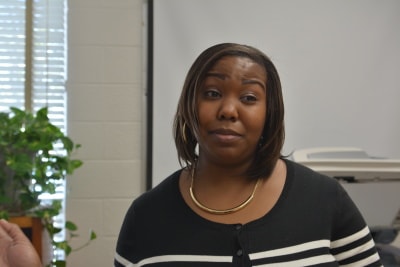

According to the school’s social worker, Sheena Patterson, between 27-30 of the students are homeless, and another 30-50 are housing insecure at any given point in time, living with grandparents or other relatives.
Many of the families are transient. Blue says she knows she is getting a new student when she gets a call from the principal at 7:00 am asking her if she has had or if she needs her morning Starbucks. “Those kids are nomadic,” says Blue. “They come in, they sit down, and they roll with it.”
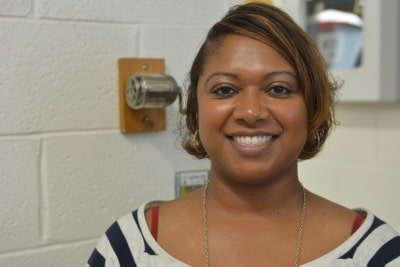

The school’s counselor, Anetrica Thomas, notes that many of the children face “critical mental health challenges.” She needs additional resources inside the school to help her cope, hoping someday there will be funding for mental health clinicians in schools.
The principal says, “These are the types of barriers we deal with.”
Whatever the barriers, the staff knows seat time matters, and so they go the extra mile to get kids to school and to get them to school on time. Sheila Tolbert, a reading teacher, talks about the outreach.
At this elementary school, many everyday heroes work together to make every minute count for the students.
“I love my kids. I love my school. They just want structure and love.” Erica Fenner-McAdoo has been the principal at Walker-Spivey for two years, and she is treated like a celebrity as the roams the halls. To minimize the disruption, she had to teach the students to do a micro wave.


“We are a community school,” McAdoo says. “We are making a mark on their lives.” Her strategies include laughter. “We have to laugh, y’all, we have to laugh.”
But they also include incenting teacher retention.
She wants the students to build the stamina they need for testing, especially third graders who have never had the experience of taking the EOG.
“We want to be data driven,” McAdoo says. “Every decision is based on the data.”
McAdoo believes mentoring is critical in building students that will become leaders. She mentors girls in grades 3-5 with a group called McAdoo’s Girls of Distinction. She takes the girls on community service field trips, discusses bullying and peer pressure, and brings in leaders to speak to with them. She brings the Great Oak Youth Development Center in twice a month to mentor boys in grades 2-5.
The school motto is “No choice but success.” College day is every fourth Friday. McAdoo says, “All teachers wear their college alumni shirts and give presentations about college, tuition, dorms, majors, and minors. Every child in this building knows they can do what they set out to do.”
She wants the children to leave her school knowing there is a whole building of adults who believe in them. She imagines with me what the children who walk her halls now will be doing in 10 years. McAdoo smiles, and says, “I chose to come to this school. I wanted to be part of changing the community.”
Ramona McFadyen is a literacy coach, and she worked with Tolbert during their summer vacation to “dig up” 4,000 books that over the years had ended up dispersed all across the school. They organized the books, looked up the reading level of each one, and then packaged them accordingly.
Principal McAdoo says, “This is what they do for the kids. This is what we do for the kids.”
McFadyen says, “It’s tiring and it’s hard and it’s not easy, but somebody has to do it, and maybe that’s my gift.”
Holmes says, “Mona is a highly regarded, experienced teacher sought after by many principals. She stays at Walker-Spivey to make a difference.”
“Reading and writing is ultra important in the lower grades,” says Tolbert. The school’s strategies include reaching out to parents.
“Our children come in almost a year behind in reading,” continues Tolbert. “It’s the lap reading, the talking that they are missing. Some parents know naturally to do these things, but others don’t. The students can catch up, but only if we build a partnership with the parents. Each child needs to hear about six books a day to become a good reader. So we are teaching the parents how to read to the kids.”
Recently at one of the classes, only about 10 parents, grandparents, and other caregivers showed up, but when a mom posted a photo on Facebook, Tolbert received calls from other parents requesting the packet.
Robert Williamson works for Communities In Schools as a student support specialist here at Walker-Spivey. As soon as I walk in the building, the front desk staff tell me in no uncertain terms that “he is a hard worker.”
Williamson plays many roles. He is a mentor to students. He helps teachers de-escalate students. He monitors tardies and attendance. He checks in on all of those unstructured times – lunch in the cafeteria, on the buses, PE.
Recently he has been working with an academically gifted fifth grader who often is tardy and absent. The student’s mom works third shift, and the student attends a 24-hour day care when he is not at school. Often the mom picks the child up at 2:00 am and the late night disruption in sleep is now having an impact on the child’s performance at school. Williamson has arranged for a tutor on two days each week so that the child can avoid being held back a grade.
“We want parents to be our partners,” he says. Several of the staff tell me that many parents feel intimidated about interacting with the school, especially if they themselves had a bad experience in school.
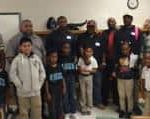

In response, Williamson set up an All Pro Dads chapter to engage fathers. Each month, the dads are invited to come have breakfast with their child at school.
The principal notes the importance of having a “visible, male presence” working to foster relationships with students and with teachers.
Walker-Spivey Elementary School is located, Holmes tells me, “in the lowest income track in Fayetteville.” The Old Wilmington Improvement Group has been working “to clean up the neighborhood, restoring the community.” There is new Hope 6 housing across the street from the school and a community garden and a new park are close by.
The staff at this school believe in this community. Blue says, “I have been blessed this year with a really good group of parents. Most of them work two and three jobs. They are single parents. A lot of grandparents are raising children. But I feel like I have 100 percent support.”
Blue says home visits are critical, especially for parents that can’t make it to schools events. “Once you reach out to parents and let them know you are willing to do anything to help their child and you are on their side, then you click with the relationships. I email my parents. I text my parents. They have my home phone number. They have my cell phone number. Their families become your family. Their problems become your problems.”
Blue says of her class, “This is one of the smartest groups I have ever had. Most of my kids can tell you where they want to go to college and what they want to do.”
Blue recently finished her master’s in education administration, but she continues to teach. “I thought I was going to be done with teaching, but I can’t quit. The kids keep you here.”
She schedules lunch dates on her calendar with each of her students. “They have so much to tell you,” she says.
This school received a C, up from a D in 2013-14, on the school’s performance grades, and according to McAdoo, the school increased proficiency by double digits last year. As we leave the school, Holmes says McAdoo has built a team with a dream, noting aptly that at this school, “education is the biggest value.”
